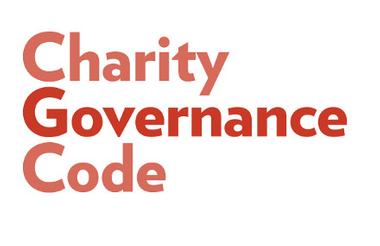The updated version of the Charity Governance Code has been published today, setting out higher standards and urging larger charities to carry out external reviews every three years.
Other key recommendations include increasing diversity on boards, a limit of nine years for trustee terms unless a good reason is given, more oversight of subsidiaries and a stronger emphasis on the role of the chair. Full details of the code are available on a new website.
The code is overseen by a steering group of charity umbrella bodies comprised of the Association of Chairs; Acevo; ICSA: The Governance Institute; NCVO; the Small Charities Coalition; and the Wales Council for Voluntary Action, and with an independent chair, Rosie Chapman.
Consultation on changes to the code, which was previously called the Code of Good Governance, began last year and received over 200 responses. Work on the code was funded by the Barrow Cabury Trust and the Clothworkers Foundation.
The Charity Commission has withdrawn its Hallmarks of an Effective Charity guidance in favour of directing people to the new code.
Chapman said: “The code for the first time sets out clear aspirations for a charity board to meet. This code is a great stepping off point to help charities navigate the changes. It will be an essential tool for charities to use and will greatly assist them to develop and grow in their effectiveness.”
Tool for funders
The code urges charities to include a line in their annual accounts explaining if they have followed the code.
She told Civil Society that the steering group was about to embark on a “conversation about making sure that the code is taken up [by the sector] and used in the longer term”.
Chapman said she wouldn’t want to see the code being used in a punitive way to strip funding from charities that haven’t followed it, but that it could be used by larger funders before making grants.
“I don’t think it is right for it to be a regulatory requirement for charities – that doesn’t feel appropriate,” she said. But she said that if charities include a statement in their annual accounts it would be a useful tool grantmakers.
Sir Stuart Etherington, chief executive of NCVO, said: “There is a clear consensus within the sector that we must focus more on governance. With this in mind, I envisage that we will soon see a commitment to following the Charity Governance Code become a requirement from many funders. Taking action now is a way of getting ahead of the game.”
Charities urged to use the new code
Peter Davies, chair of the board of trustees at the Wales Council for Voluntary Action, said: “Strong governance is essential in building trust with funders and ensuring the effectiveness of services to beneficiaries.
“WCVA welcomes the new code in providing clear guidance to trustees and will be working to support its implementation across the sector in Wales.”
Rosalind Oakley, executive director of the Association of Chairs, said: “The new code is a welcome and useful resource. By using it, chairs can work with their board to explore what good governance looks like and to identify and close any gaps in their approach.”
John Barrett, chief executive of the Small Charities Coalition, said: “The code sets the aspirations for good governance, and in applying it, small charities should take a proportional approach and remember application of the code is about continuous improvement, not perfection.”
Louise Thomson, head of policy at ICSA: the Governance Institute, said: “The recalibration of the code makes it more relevant, flexible and aspirational in establishing good governance in any size of charity.
“We particularly welcome the emphasis on the importance of people and behaviours in delivering good governance. This is just as important as having appropriate structures in place.”
Vicky Browning, chief executive of Acevo, said: “We know effective governance is crucial to the running of any charity. The new governance code is a key tool in ensuring this is achieved. I would recommend that all charity leaders – whether they’re chairs or CEOs – read it and take on board its recommendations.”
Related articles











